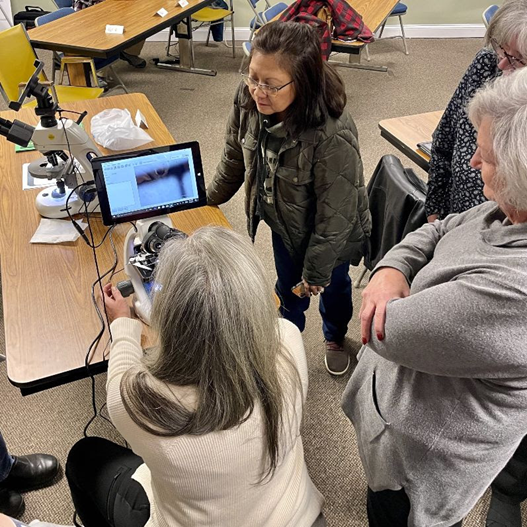
At the request of the Smith Mountain Lake Association in Moneta, Virginia, NCCOS’s Phytoplankton Monitoring Network (PMN) recently trained volunteers working for the association’s new water quality monitoring program, Dock Watch. PMN staff held the workshop at the lake for 25 volunteers, who received training in freshwater algae sampling and microscopic identification of five key harmful cyanobacteria groups.
Dock Watch launched last year in response to a large cyanobacteria bloom in 2023 that resulted in the first ever swimming advisory at the lake. Volunteers with the new program conduct water quality monitoring every other week at over 80 sites around the lake. Following the workshop at Smith Mountain Lake, PMN staff held a refresher training for volunteers with the Lake Anna Civic Association in Mineral, Virginia, which in 2023 became the first site in Virginia for PMN’s freshwater program.
The Virginia Department of Health warns people and their pets to avoid freshwater with visible blooms of cyanobacteria, which can cause skin rashes, eye and ear irritation, and gastrointestinal illness.
